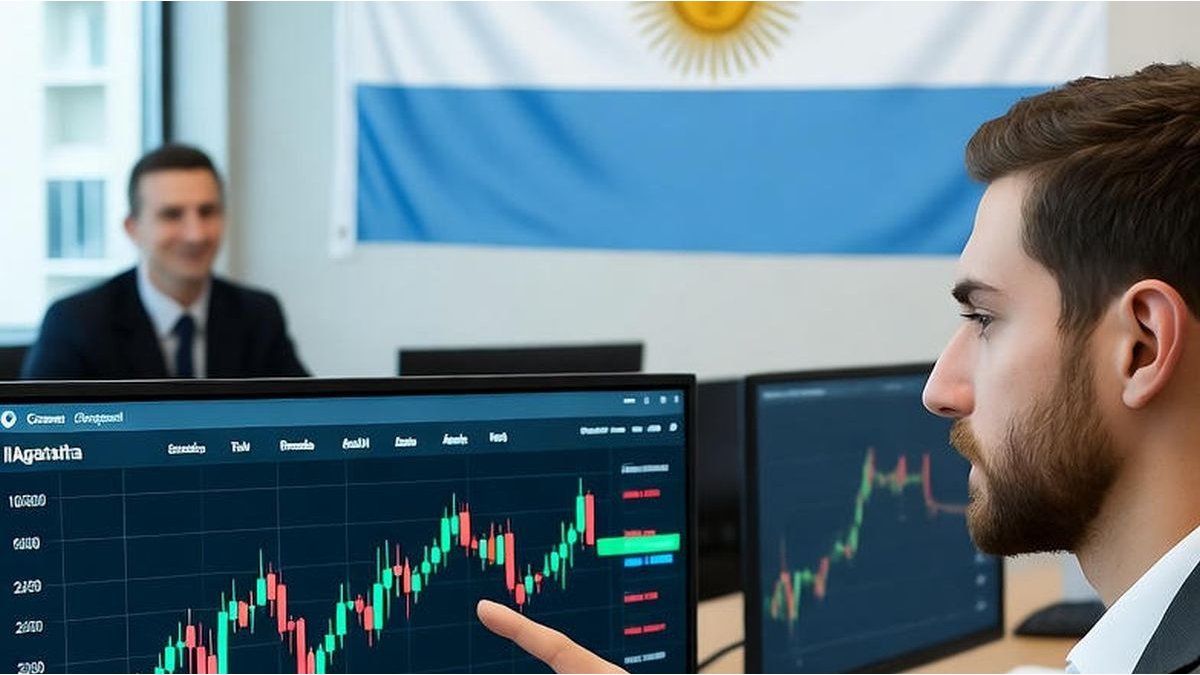In October 2025, while the cameras focused on an Argentine president hugging former President Donald Trump, the markets smiled with the satisfaction of someone who already knows the ending of the script. Voters believed they were electing a government; Wall Street knew it was consolidating a long position. The campaign of Freedom Advances It was made without dollars, only with tweets by Scott Bessent, Trump selfies and Jamie Dimon’s silent blessing. No power had invested so little to obtain so much.
The libertarian myth of a country redeemed by “market rationality” hid the obvious, rationality belonged to another market. The real one think tank I was not in Buenos Aires but on Park Avenueand its stabilization plan consisted of selling BCRA futures while the US Treasury, discreetly, converted its effort into pesos into power. In the hallways there is talk of “trade off” or “they didn’t put in a dollar.” The truth is that, strictly speaking, we are not witnessing the rise of a political movement but rather the territorial expansion of the carry trade.
From swaps to likes: the new marketing of financial domination
JP Morgan He is the old hero of modern debt. Since the 80s, its analysts They manufactured the “emerging market” as a laboratory where debt was raw material for financial engineering (Alexander, 1984; Cline, 1984; Muehring, 1994)
Argentina was his model student; In the 90s, the country exchanged sovereignty for spreadsand in 2018 did it again with the coverage of standby of the IMF, with the same The Caputo’s of life, identical partners and the same excuses.
That JP Morgan technical report from 2019 already anticipated the tragedy (Nguyen et al., 2019) warned that 81% of Argentine debt was in foreign currency and that any movement in the exchange rate could make it unpayable. A few years later, the same diagnoses are recited by former traders turned officials, who present themselves as “sages of stability.” The irony is circular; Those responsible for the problem now manage its solution, and charge double commission.
The libertarian story achieved, however, an admirable publicity coup. Where before there were bonuses and swapstoday there is memes. The debt was disguised as a moral feat. And obedience to Washington – that ritual of the financial periphery – was reinterpreted as “market honesty.” Nothing more efficient than turning subordination into epic.
The Task Force: Washington DC, Wall Street and the WhatsApp of power
Local analysts speak of “strategic alignment” with the United States. It is a polite euphemism for a custodial relationship. What exists is a task force permanent; the Argentine government, the US Treasury, JP Morgan Chase and the troupe of officials orbiting between Buenos Aires and New York. It’s not a conspiracy, it’s an organizational chart.
Bessent – manager of the Key Square Capital fund and direct disciple of Soros – operates as an informal intermediary between Trump and the libertarian financial wing. Their role is reminiscent of that of debt traders who coordinated swaps and speeches in the 1990s. The difference is that now the flow does not go through Bloomberg Terminal but for Twitter.
The task force dominates the information scene. Each tweet de Bessent is equivalent to a market operation, and each photo of Trump with Milei is a symbolic asset that revalues the “Argentina risk” in investment funds. Meanwhile, the success story – reserves “recovered”, inflation “contained”, growth “to come” – works as hedge communicational. Politics became a financial derivative; Its value depends on expectations, not fundamentals.
Traders as ministers: the aestheticization of financial raiding
The great innovation of the 21st century is not fintech but the performative technocracy; individuals who learned in investment banks to simulate knowledge and turn lies into assets. In Too Big to FailAndrew Ross Sorkin (2009) portrays Jamie Dimon running to the Federal Reserve to save Wall Street. In Buenos Aires, the scene is repeated with less glamor and more YouTube spot; The local “Dimonitos” dress up as ministers and declare that the market loves them.
Their merit is not technical but aesthetic, they master the grammar of imposture. They present the adjustment as if it were an algorithm and the national delivery as if it were benchmarking. The “republic of traders” has replaced deliberation with the Excel spreadsheet and ethics with the spread.
Financial knowledge became office pseudoscience. When they announce that “there are no dollars,” they omit that they themselves sold them in the future to support the electoral exchange rate. According to estimates, the BCRA exceeded 7,000 million dollars sold in futures during October… That is to say; While there was talk of “help”, in the corridors of the city there were potential hypotheses: they would buy pesos and simultaneously backup with “helping hands” (future dollars). He carry trade most expensive in history.
From Wall Street to Balcarce 50: anatomy of a recycled dependency
The cycle is always the same. First, the banks create the problem: debt in hard currency, external deficit, flight. Then, they design the remedy: a stabilization program with impossible goals and infinite conditionalities. Finally, they charge for advice. JP Morgan perfected it in Latin America and institutionalized it in Argentina, where each crisis is celebrated as a “new beginning.”
Dimon, the self-proclaimed “man who knew too much” (Sorkin, 2009), visited Buenos Aires to bless the “new stage” and make it clear who is in charge. Under his leadership, the bank that received $25 billion from the TARP program (Troubled Asset Relief Program or Troubled Asset Relief Program – a euphemism) during the 2008 crisis now reappears as a moral guarantor of “macroeconomic rationality”. The miracle of capitalism is its ability to turn the rescued into a rescuer.
Argentine subordination is not the result of ignorance but of convenience. Former traders turned civil servants know the rules: the prize is belonging, especially if they have to leave. Libertarian ideology, in reality, is an instrument of global power: dismantling the State to open space for financial flows. The rest is storytelling.
The Argentine experiment, or how to fly through the air with elegance
Argentina has become the most recent experiment in financial engineering that disguises dependence as meritocracy. The current government functions as a subsidiary of Wall Street, with a boards mix of local economists and foreign advisors. If the accounts close, the credit continues; If not, the country explodes, and the statement will say that it was “due to excess populism.”
The final paradox is that, while the sovereignty of the market is proclaimed, the real decision is in the hands of a handful of traders and think tankers who don’t even pay taxes in the country. Argentina is today a hedge fund sovereign, administered by those who previously bet against it.
The immediate result is the mirage of stability; the final result, the destruction of democratic legitimacy. If the calculation fails – if the electoral experiment is not renewed – the task force he will retire and leave the nation exactly where he started; with the ruins of his own self-deception. And, of course, with a new report from JP Morgan explaining why “no one saw it coming.”
Director of the Esperanza Foundation and the consulting firm Hace.com.ar. Postgraduate professor at the University of Buenos Aires and private universities. He has a master’s degree in International Economic Policy, a doctorate in Political Science and is the author of six books.
Source: Ambito
David William is a talented author who has made a name for himself in the world of writing. He is a professional author who writes on a wide range of topics, from general interest to opinion news. David is currently working as a writer at 24 hours worlds where he brings his unique perspective and in-depth research to his articles, making them both informative and engaging.




